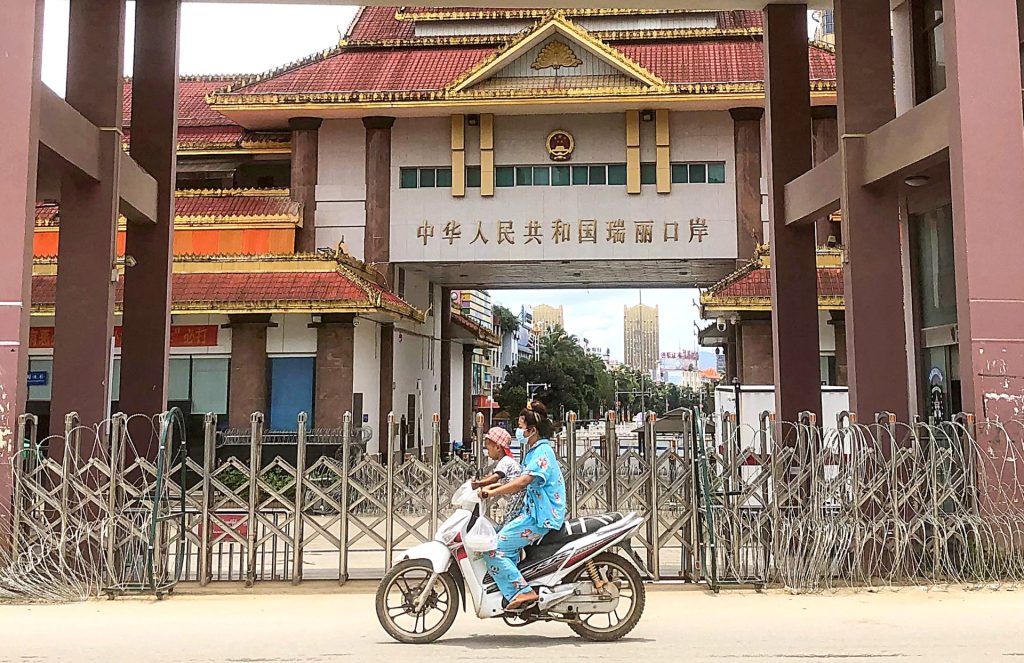
ISP Data Matters No. 1
(This article is a translation of the Burmese language version that ISP-Myanmar posted on its Facebook page on January 26, 2022.)
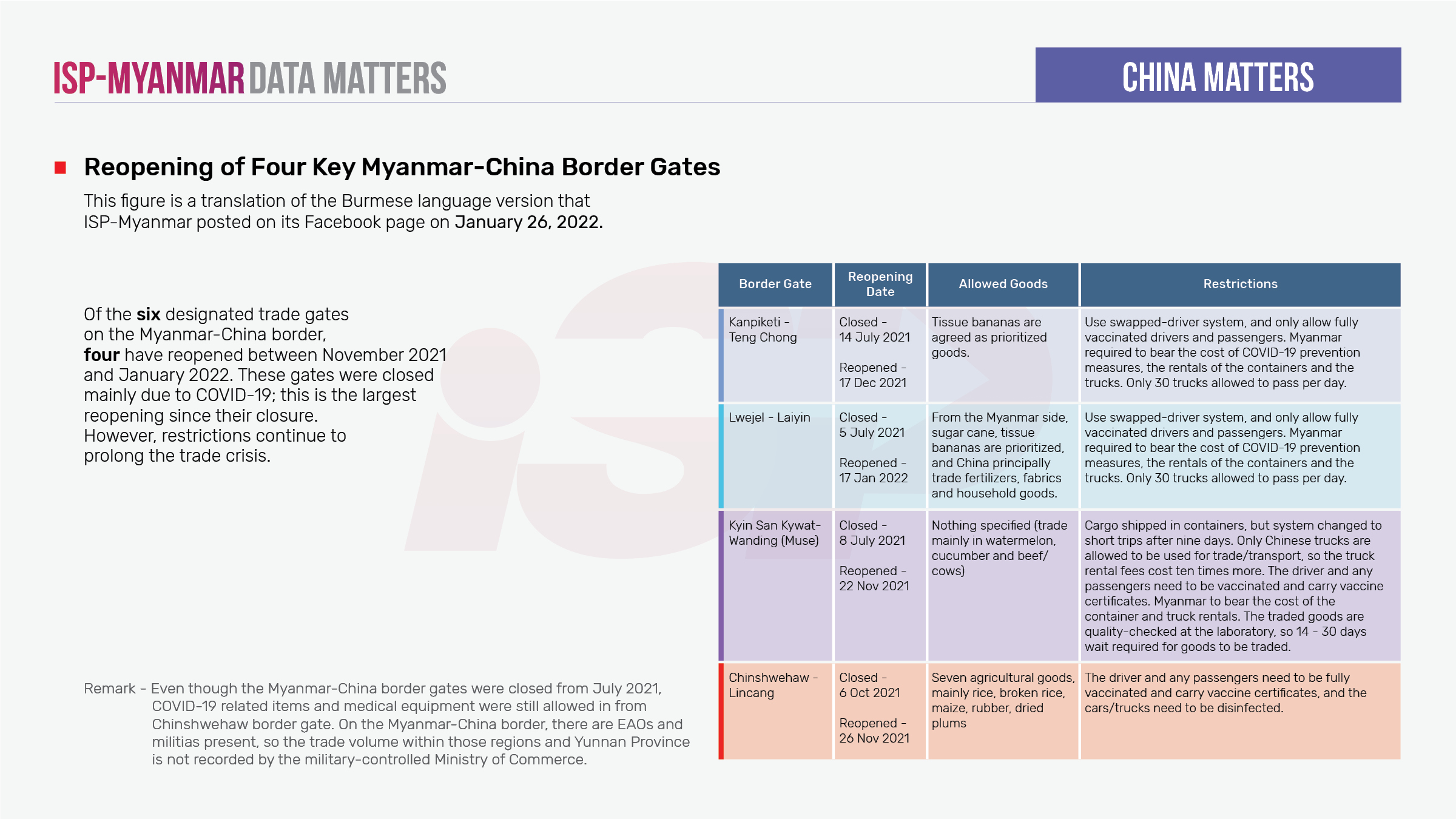
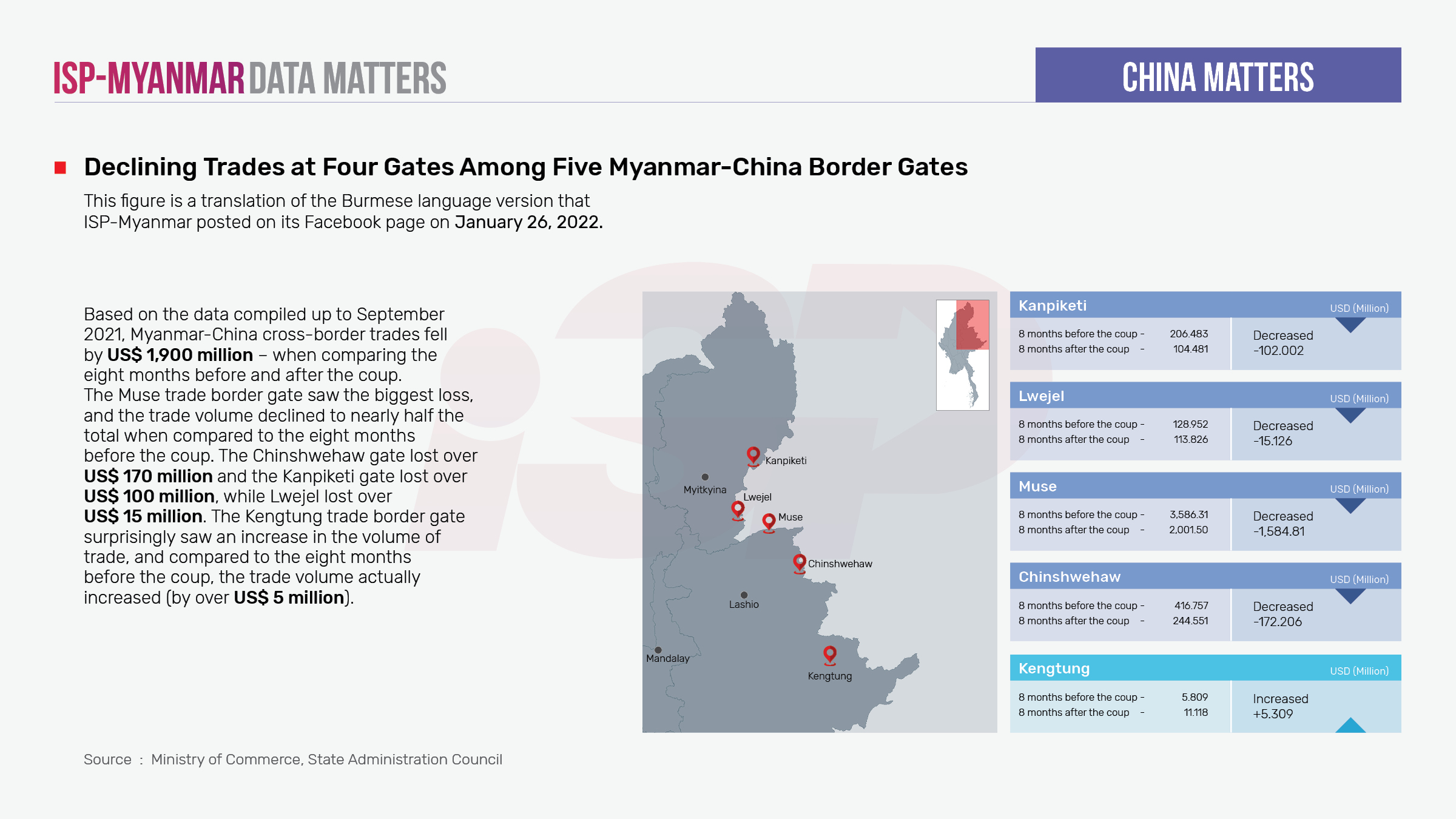
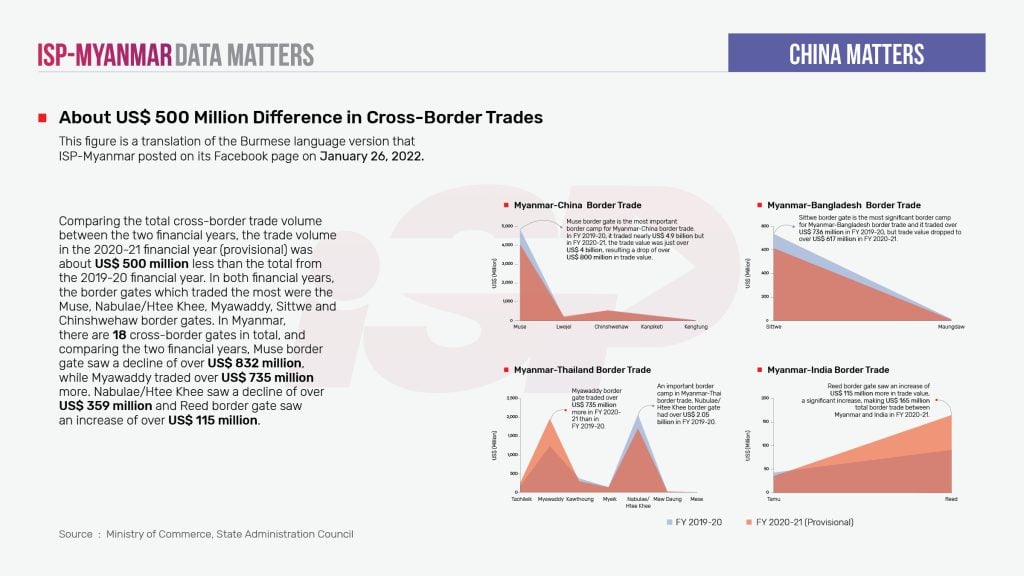
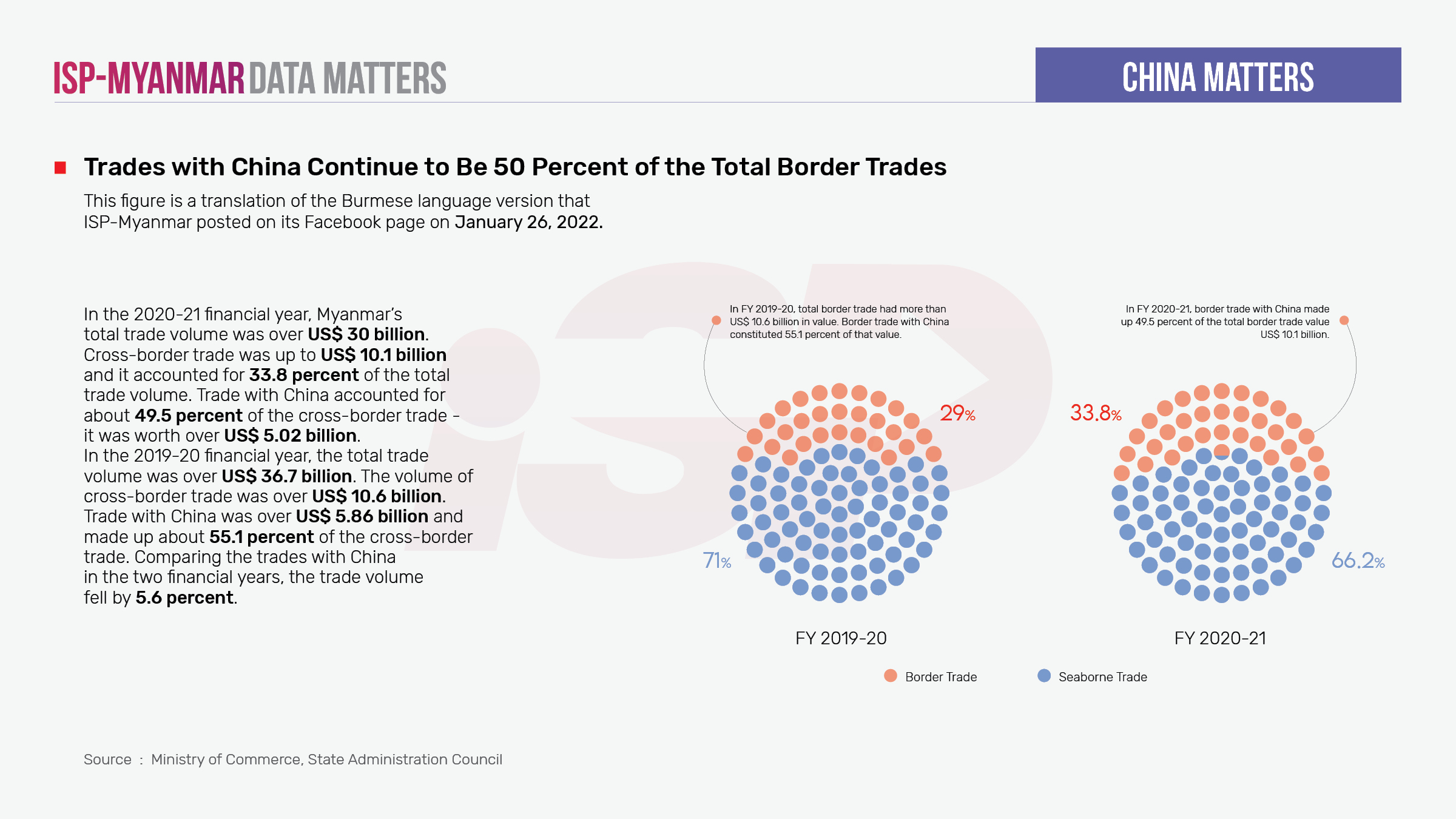
Of the six designated trade gates on the Myanmar-China border, four have reopened between November 2021 and January 2022. These gates were closed mainly due to COVID-19; this is the largest reopening since their closure. However, restrictions continue to prolong the trade crisis.
China’s closure of border trade gates with Myanmar during the third wave of COVID-19 set a new record low for China-Myanmar trade. Compared to the 2019-2020 financial year and the 2020-2021 financial year (provisional), the trade volume fell by more than US$ 837 million. Despite this, cross-border trade with China still constitutes around half of Myanmar’s total border trade, accounting for approximately 55.1 percent of total border trade in the 2019-2020 financial year, and 49.5 percent in the 2020-2021 financial year.
The military council has repeatedly attempted to reopen border trade gates to address the economic downturn following the coup. At the end of November 2021, the key trading checkpoints on the Myanmar-China border (Kyin San Kywat and Chinshwehaw) reopened, and the Kanpiketi and Lwejel gates in Kachin State also reopened. The Man Wein gate and Kyukot (Pangsai) gate have yet to be reopened till January 2022.
Despite this reopening, China’s restrictive COVID-19 regulations and changing policies have led to delays in the flow of goods, which, combined with rising export costs and general expenses, are causing significant difficulties for merchants and businesses. Exporters of watermelons, onions and pulses are bearing the biggest losses, often forcing them to sell on the sidewalks or even to abandon the entire truck-loads of goods due to protracted waiting periods. People are losing hundreds of thousands of Myanmar Kyats, especially traders and farmers who export perishable goods.
∎ Why does it matter?
The impacts of the post-coup economic crisis, and the western sanctions on Myanmar’s foreign trade, will have a pivotal effect on Myanmar’s economic and democratic reforms. Economic performance reflects a wide range of foreign political and economic considerations, which will help to illustrate the role of foreign countries in Myanmar’s democratization efforts.
∎ Other relevant readings
Domestic and foreign trade statistics are available on the official website of the Ministry of Commerce on a monthly and yearly basis, as well as trade valuations from the same period. In addition, the figures and statistics from the World Bank and the annual reports released by the Asian Development Bank are available for comparison.

